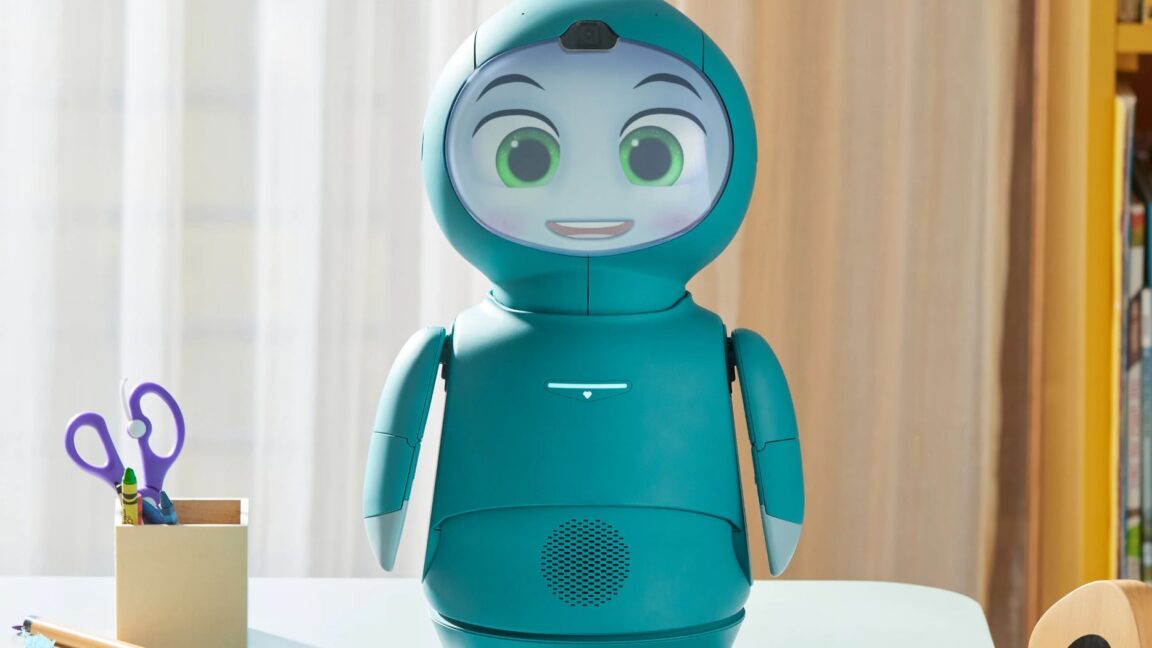
Startup set to brick $800 kids robot is trying to open source it first
arstechnica.com
OpenMoxie Startup set to brick $800 kids robot is trying to open source it first Most owners still won't be refunded for the emotional support toy. Scharon Harding Dec 20, 2024 2:10 pm | 45 Credit: Embodied Credit: Embodied Story textSizeSmallStandardLargeWidth *StandardWideLinksStandardOrange* Subscribers only Learn moreEarlier this month, startup Embodied announced that it is going out of business and taking its Moxie robot with it. The $800 robots, aimed at providing emotional support for kids ages 5 to 10, would soon be bricked, the company said, because they cant perform their core features without the cloud. Following customer backlash, Embodied is trying to create a way for the robots to live an open sourced second life.Embodied CEO Paolo Pirjanian shared a document via a LinkedIn blog post today saying that people who used to be part of Embodieds technical team are developing a potential and open source way to keep Moxies running. The document reads:This initiative involves developing a local server application (OpenMoxie) that you can run on your own computer. Once available, this community-driven option will enable you (or technically inclined individuals) to maintain Moxies basic functionality, develop new features, and modify her capabilities to better suit your needswithout reliance on Embodieds cloud servers.The notice says that after releasing OpenMoxie, Embodied plans to release all necessary code and documentation for developers and users.Pirjanian said that an over-the-air (OTA) update is now available for download that will allow previously purchased Moxies to support OpenMoxie. The executive noted that Embodied is still seeking long-term answers but claimed that the update is a vital first step to keep the door open for the robot's continued functionality.At this time, OpenMoxie isnt available and doesnt have a release date. Embodieds wording also seems careful to leave an opening for OpenMoxie to not actually release; although, the company seems optimistic.However, theres also a risk of users failing to update their robots in time and properly. Embodied noted that it wont be able to support users who have trouble with the update or with OpenMoxie post-release. Updating the robot includes connecting to Wi-Fi and leaving it on for at least an hour.It is extremely important that you update your Moxie with this OTA as soon as possible because once the cloud servers stop working you will not be able to update your robot, the document reads. Embodied hasn't said when exactly its cloud servers still stop working.Good, not great, newsMoxie's story is similar to that of Spotify's CarThing, a gadget that mounted to car dashboards and auxiliary outlets so driveres could easily access Spotify. In May, Spotify said it would brick CarThings in December and wouldn't open source them. However, in November, YouTuber Dammit Jeff explained how to repurpose CarThings so that they could still be of value to people who spent up to $90 to own one.Moxies bricking is more "unsettling," as Pirjanian put it, because Embodied said most people wouldnt get refunds (only those who bought it within 30 days of the closure announcement have a chance of maybe getting their money back). At $800, Moxies were also much more expensive than CarThings.Embodied says it's shuttering due to failed funding, meaning it likely has thin resources for keeping Moxies alive. So, it's nice to see the startup make this effort to try to compensate customers, especially after parents have complained of heart-wrenching conversations with children about how their favorite toy would soon stop speaking to them.Still, this isnt an ideal solution for parents who invested in an emotional support toy for their kid and may not have the know-how or time to keep it alive after Embodied closes. While Embodied is doing better than other firms that have bricked or otherwise changed smart device capabilities after release, it remains a disappointing and possibly illegal trend among tech companies pushing products only to alter their functionality or stop supporting their software after taking people's money.Scharon HardingSenior Technology ReporterScharon HardingSenior Technology Reporter Scharon is a Senior Technology Reporter at Ars Technica writing news, reviews, and analysis on consumer gadgets and services. She's been reporting on technology for over 10 years, with bylines at Toms Hardware, Channelnomics, and CRN UK. 45 Comments
0 Commenti
·0 condivisioni
·150 Views


